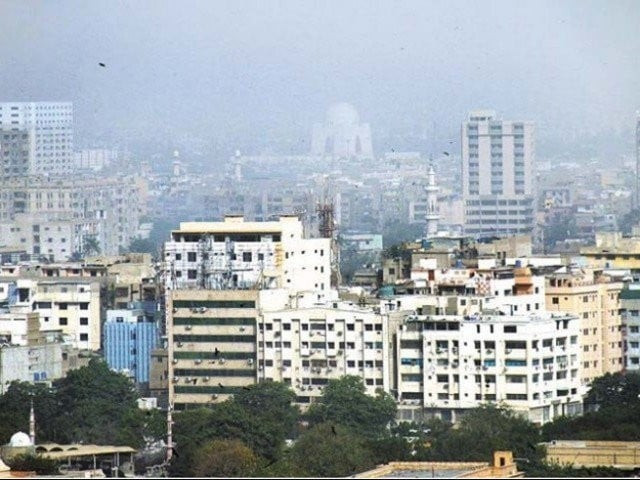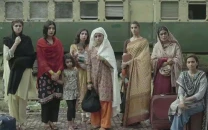World’s dirtiest city
Not much has changed in Karachi nearly 50 years on

An aerial view of Karachi. PHOTO: FILE
Time and again we have read, heard and discussed what ails this city. Some accuse outsiders of running the city into the ground. But can we blame everything on others? A popular sentiment is that no one owns Karachi. One time mayor of the city - Mustafa Kamal, started a drive called “I own Karachi” to give people some sense of ownership. It met with some success. But with his departure, that initiative also ended.
Possibly some history of the city may help give context. This is one of the only cities in the world where outsiders have outnumbered original inhabitants. This happened soon after partition when Karachi became the capital of Pakistan. In an interview with the late Abdullah J Memon, a bureaucrat who closely watched the progress of the city, the whole fabric of Karachi changed within years of partition. The outsiders became the owners and started to put down the original inhabitants.
The older residents were put on the defensive. In the mid-60’s, following the India-Pakistan war, a number of Hindu families that were part and parcel of the city were forced into leaving. They had no intention of doing so but politics prevailed. They had to emigrate with nothing but the shirt on their backs. If luminaries like LK Advani and Ram Jethmalani, who recently passed away, were bitter with Pakistan, it was because of how they were forced out.
Since partition, the influx of new people into Karachi has never stopped. While by world standards, it may be one of the least livable cities, by Pakistani standards it is possibly the most welcoming. From those who arrived at the time of partition and kept on coming for several years on, to people from other parts of Pakistan who settled in phases and also to people from countries as diverse as Burma, Bangladesh, Afghanistan and Iran, Karachi has been home for millions.
Despite its chaos and crime, this is a city where people come to seek and make their fortunes. The problem in all this, however, is that no one wants to take responsibility for the city. While some migrants have lived for several generations, there are others who only want to stay for some years to make money and leave. Little do they realize that despite this, sooner or later - usually because their children do not want to move, they end up settling too.
There is a transitory feeling to the city. A city with so much history has been unable to build structures or systems. Mafias have taken over - which may not necessarily be a bad thing. They have provided land, water, power and transport at a time when the government was unable to do so. But the mafias have been facilitated by the city’s notoriously corrupt police force which seems to have benefitted the most from the city’s lack of leadership.
Leadership for its part has come in bits and pieces. Time and again well-meaning leaders and movements have come to the fore - only to fall victims to corruption and power. Whatever the party or government, everyone seems to have made money at the expense of Karachi.
With this is mind, one can only wonder how the city continues to function. As such the city does not have any real representatives at the helm of affairs. Everything is by proxy. This is a city where the ruling party, the one that calls the shots, has little representation from on the ground.
This is Pakistan’s largest city, but it does not have a proper water supply system, mass transit system, solid and liquid waste disposal system let alone proper health, education or public utility services. At our Centre for Journalism, located at IBA, we invited both the mayor of Karachi, Waseem Akhtar, and the minister for local government, Saeed Ghani, to state their case. Both came and spoke at length and were equally convincing. Who to blame, one asks.
Published in The Express Tribune, September 30th, 2019.
Like Opinion & Editorial on Facebook, follow @ETOpEd on Twitter to receive all updates on all our daily pieces.















COMMENTS
Comments are moderated and generally will be posted if they are on-topic and not abusive.
For more information, please see our Comments FAQ